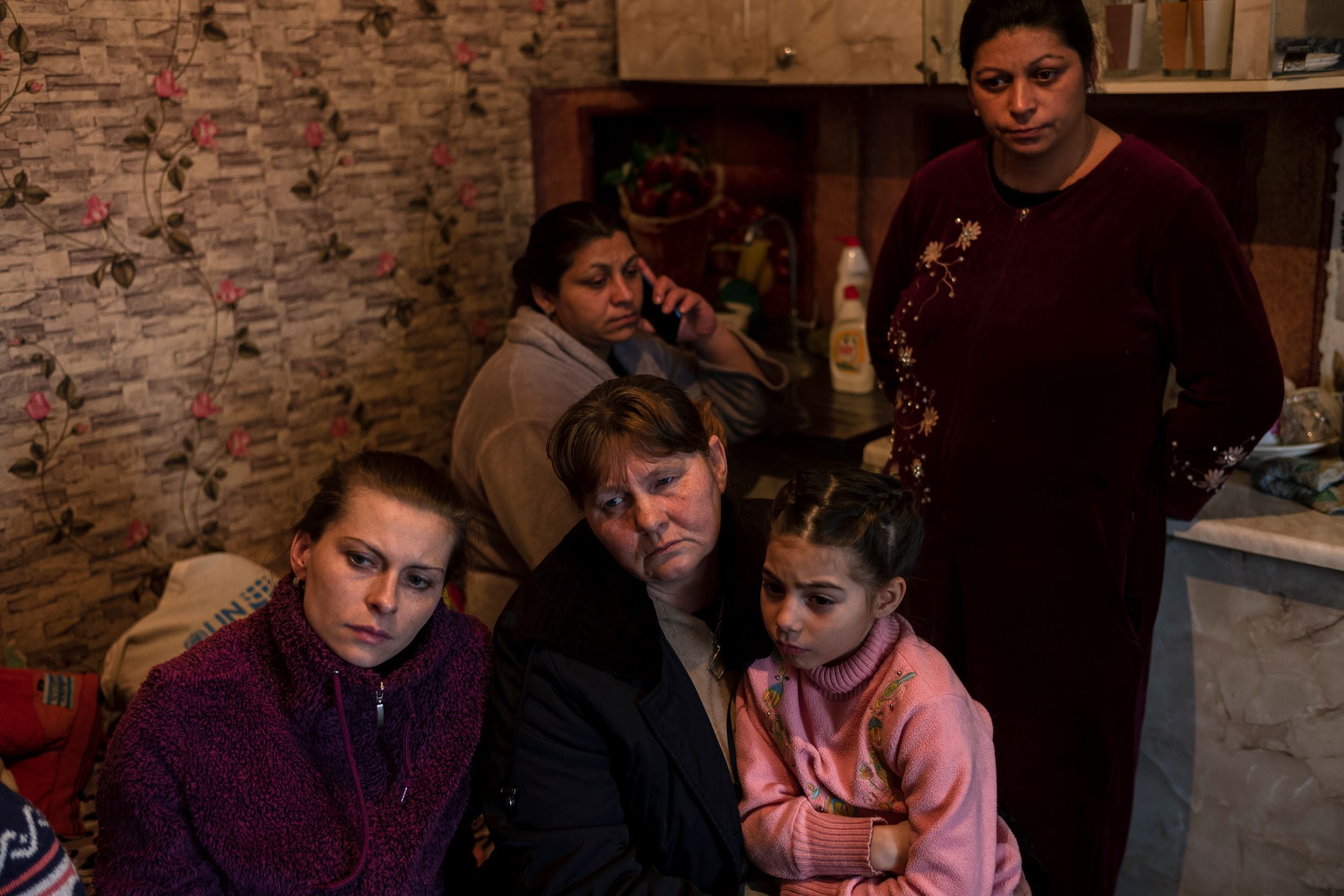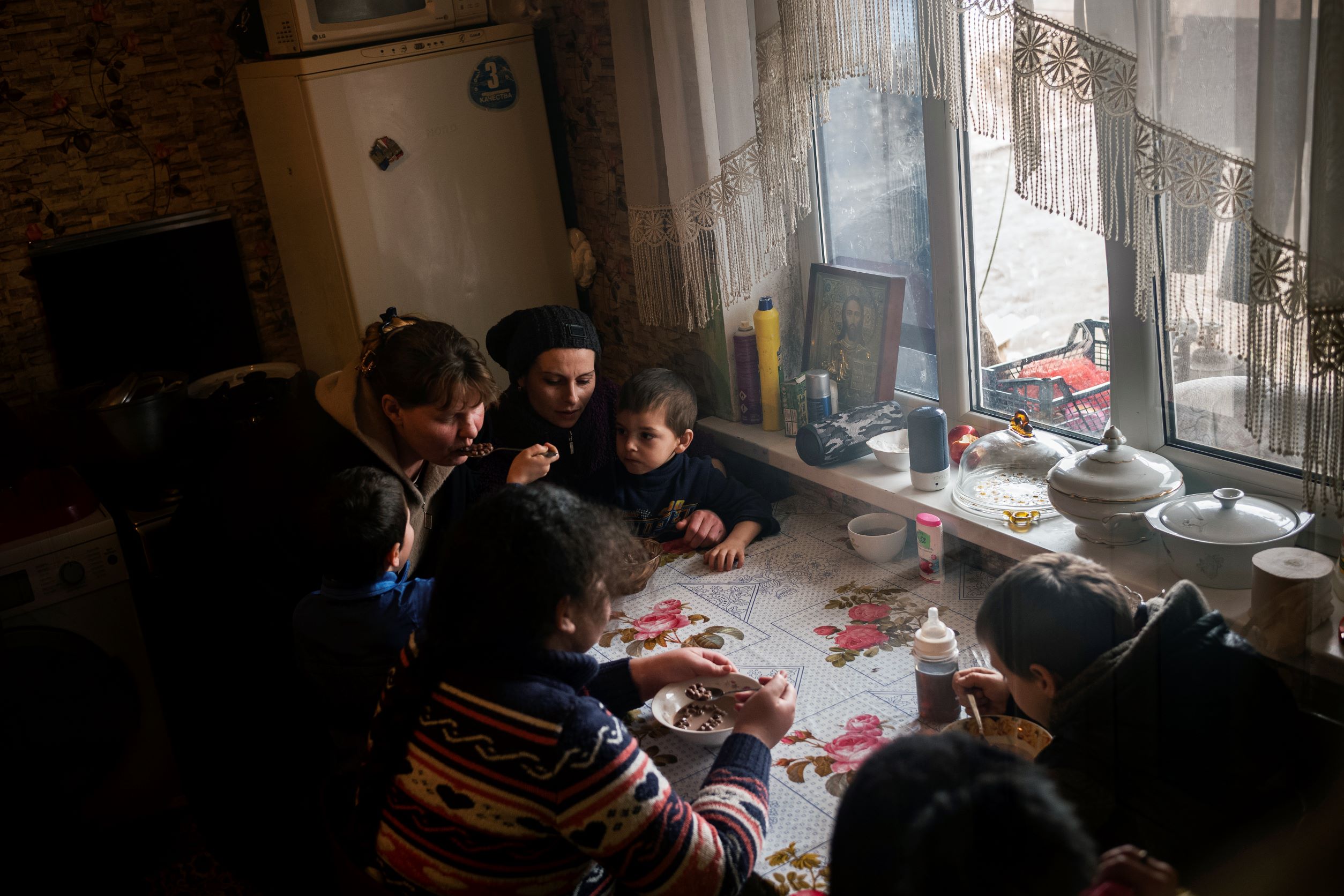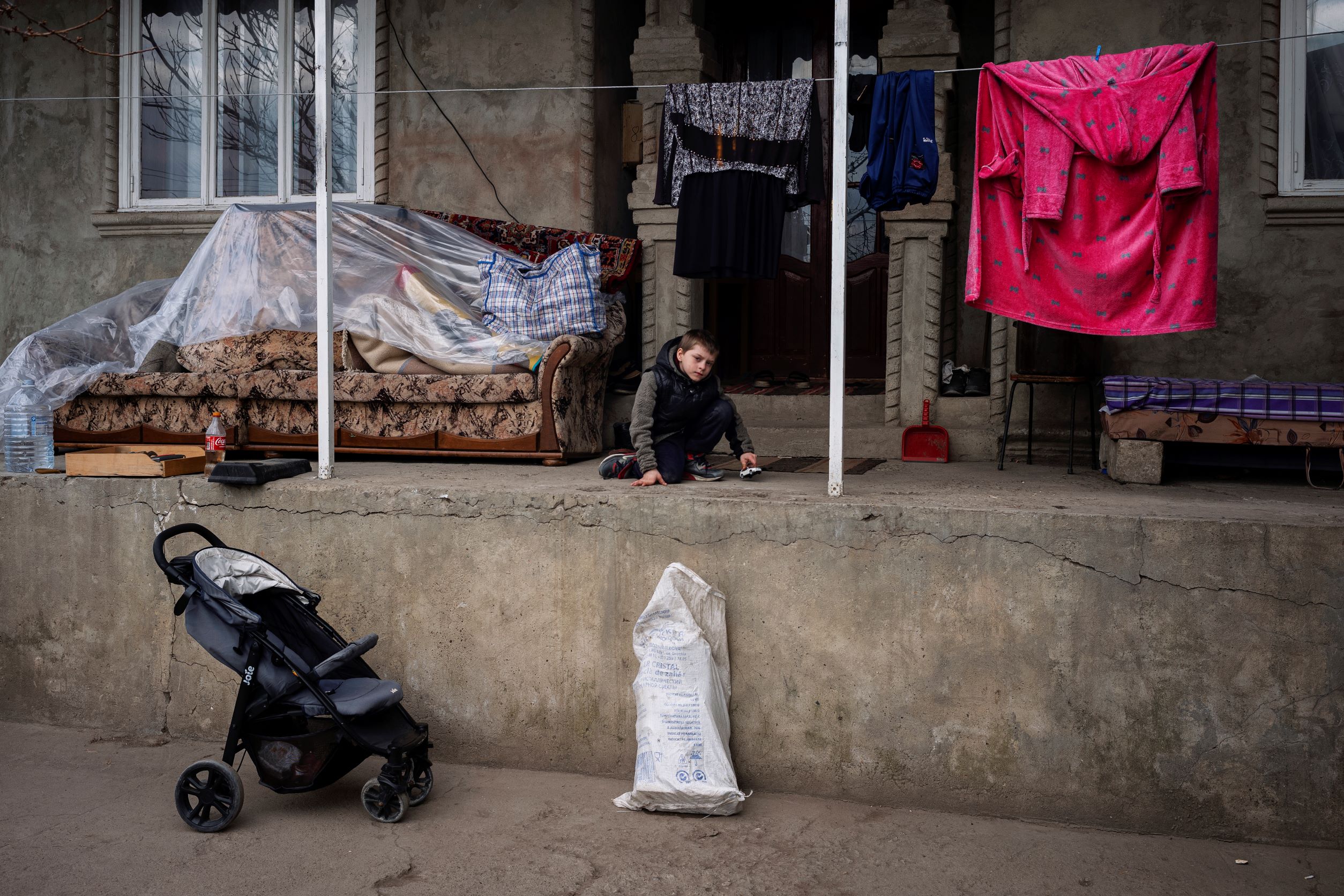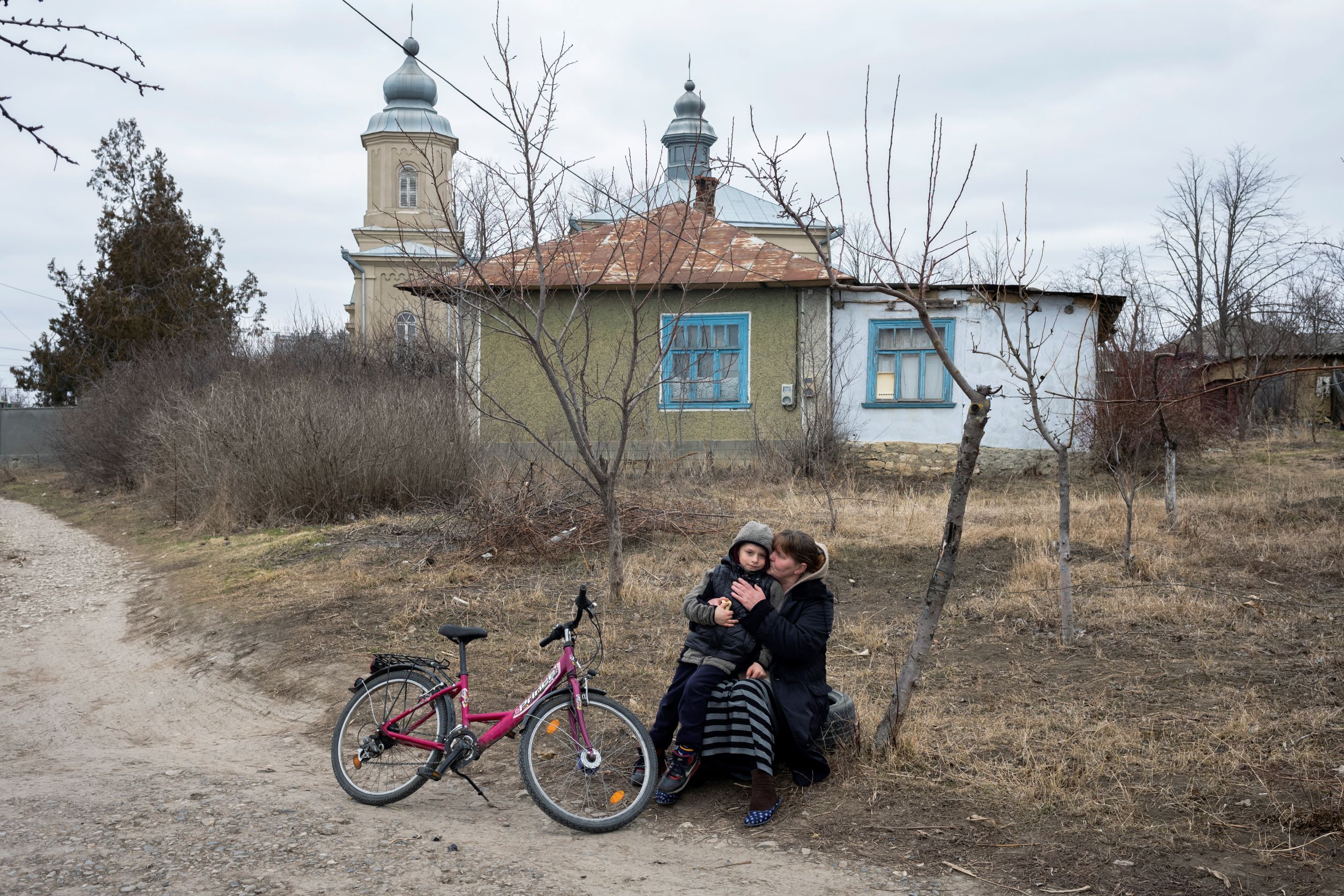A Roma family from Ukraine describes the terror that led them to flee
Date:
As a result of the Russian Federation’s military invasion of Ukraine, more than 10 million people have now been forced from their homes in search of safety and security. This includes an estimated 6.5 million who are internally displaced, and nearly 3.5 million people who have crossed international borders out of Ukraine as refugees. As of 22 March 2022, there were 97.057 refugees from Ukraine in Moldova, most being women and children. This is also the case of an extended family of 12 members of the Roma community who were forced to flee their homes in the village of Arbuzinka, Mykolaiv Oblast, Ukraine, to seek safety, protection, and assistance in the Republic of Moldova.
Dafina, Albina and Angela, accompanied by their children and close relatives, rode for 10 hours in an ordinary car designed for five people. Albina had to ride in the trunk with two of her four children.

Photo credit: Maxime Fossat, UN Women
“I don’t even know how we managed to get out of there; it is awful”, says Dafina, who came to Moldova with her 17-year-old son and her 12-year-old daughter. “On 23 February, we celebrated the birthday of our twins, Rustam and Arsen. We went to bed in peace, and on 24 February, at 6 a.m., my sister called me to say that the war had started. I started calling our relatives as well. We started gathering together, thinking about what to do. My brother from Kyiv didn’t manage to come to us. Bridges have been destroyed,” says Albina.
She and her four children have been sleeping in a basement for eight days, and her children fell ill.
“It took us three days to take the decision to leave. We were very afraid of the path we had to travel. But at some point we heard intense gunfire and missiles. We woke up at 5 a.m., although I couldn’t say we could sleep. We could just doze off for an hour, and it was announced that we would be attacked soon. The children were trembling; they were holding our feet; they didn’t want to let us go. The doorsteps were shaking because of explosions. We realized that we had to leave; we had no choice. We didn’t take anything, as there were many of us who had to fit in the car. I left in slippers.” Albina says.
Angela adds: “We took the decision to leave at a moment when the children were playing outside and a missile flew above their heads and broke the windows of our house. Frightened, the children lay on the ground.”

Photo credit: Maxime Fossat, UN Women
Even before the war, a lack of identification documents prevented Roma women from exercising their social and economic rights. Many don’t have passports or the financial means to travel. Even though Dafina, Albina and Angela were able to leave the country with their extended family, they encountered many challenges on the way.
Dafina says that they had to change their route three times, as the road they had to take was mined. Along the road, she says they saw a burning military car and many dead people lying on the road. “We tried to close our childrens’ eyes, so they didn’t see those atrocities,” Dafina says.
“We don’t know what happened to our house since we left. Our neighbour’s house has been destroyed. We left everything we had. We took the most precious thing: our children. We gave all our food to our neighbours. We didn’t want it to go to waste. We are sorry for our homes, which we worked all our lives for. But we are happy we are alive. We didn’t believe we could arrive alive to Moldova in the car. We were saying goodbye to each other because we knew that anything could happen at any moment.”

Photo credit: Maxime Fossat, UN Women
Albina adds that when they had just arrived, the children heard a noise outside and got frightened. They started searching for a place to hide. They are 22 people in a house because the family that is sheltering them consists of 10 members.
“We are in a very bad situation, we don’t have firewood, we haven’t been heating our house for about two days. Yesterday was the only day when we gathered everything we could find to heat the house and bathe the children. We had everything we needed in Ukraine,” laments Albina.
They need medication as well. Dafina’s daughter suffers from asthma and Dafina has heart problems. Angela, Albina’s mother, has blood cancer, which causes problems with her lungs and breathing, and she needs a new inhaler because hers has just 40 doses left.
Roma women have high unemployment rates and poor employment opportunities which is a barrier to their full social inclusion and integration. They have higher illiteracy and lower education rates, often in conjunction with early marriage. Women from disadvantaged groups like the Roma community will continue to be disproportionately affected by the negative impacts of the war.

Photo credit: Maxime Fossat, UN Women
The family says they don’t know what to do. They express gratitude to those who are sheltering them – very distant relatives – but they realize that they can’t do this infinitely. The women say they would like to find a job and housing to be able to start with something, but there are no employment opportunities in the village.
But most of all, they say they wish to return to their homes, and live in peace.